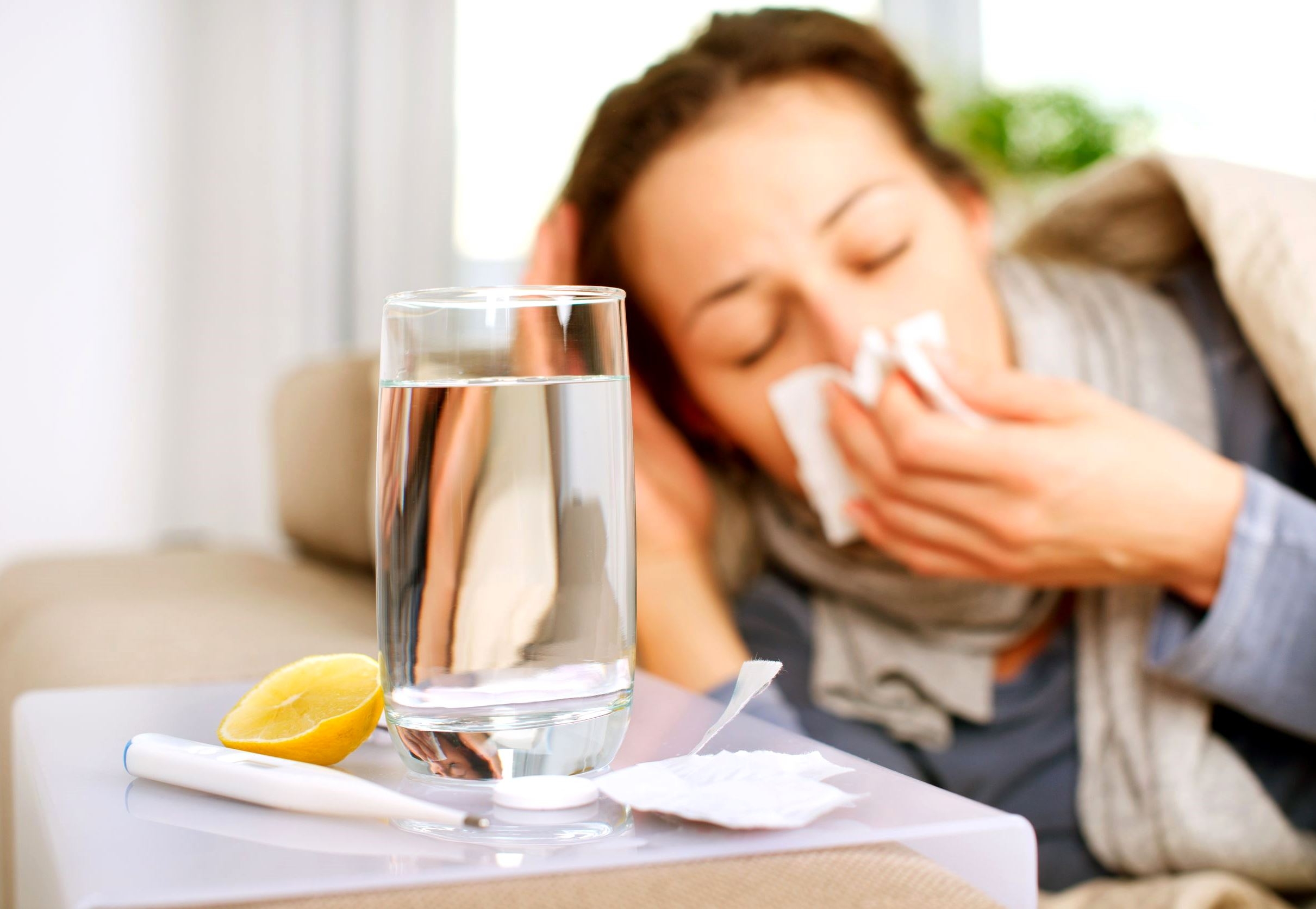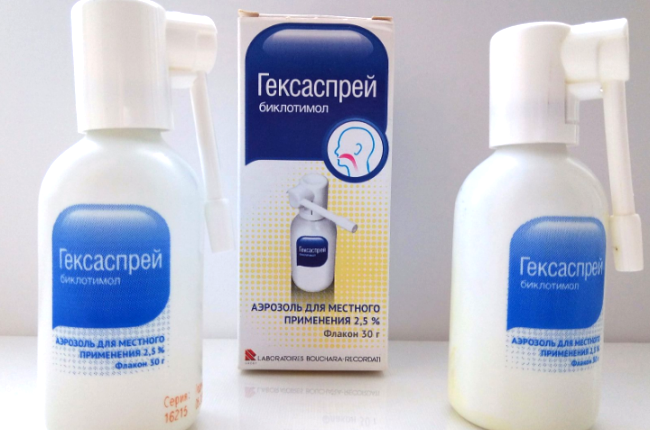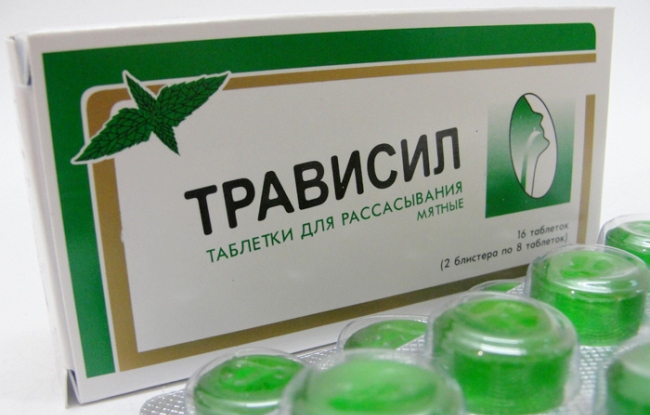Description: War Thunder is a next generation military MMO game dedicated to...


According to the statistics available World Organization Health care, in nine cases out of ten, an infectious disease will turn out to be an acute respiratory viral infection (ARVI), thus, acute respiratory diseases, including acute respiratory viral infections (respiratory syncytial infections, rhinovirus and adenovirus infections, as well as other catarrhal inflammations of the upper respiratory tract), occupy a significant place in the structure of the incidence of any country in the world.
The World Health Organization is concerned that it is SARS that top the list of the most important causes of death in all countries of the world, regardless of their level of development, standard of living and the level of development of health systems. WHO confirms that acute viral infections, including respiratory syncytial infections, rhinovirus infections, adenovirus infections and catarrhs of the upper respiratory tract, annually claim the lives of at least four million people on the planet.
It is important to understand that since SARS can be transmitted in different ways, almost anyone is at risk, but people with weakened immunity for various reasons, including nursing mothers, are especially vulnerable. In addition, it should be remembered that a bacterial infection can also join a viral infection, which complicates the course of the disease and its therapy. No wonder that great value acquires the problem of choosing a drug that can effectively resist a viral infection.
The word "virus" in Latin means poison.
A virus in modern science is called tiny (they cannot even be seen through a microscope) organisms that cause a painful state of the body and can cause its death. It has been proven that the virus is much smaller than the size of the smallest cell. Moreover, the virus has a non-cellular structure and lives and multiplies (reproduces) only inside a living cell.
Modern science knows a huge number of viruses, but it is almost impossible to count their number, since viruses are capable of constantly forming new strains (varieties) and have a simply fantastic ability to transform and adapt to any conditions. It is interesting that in science there is still no consensus on how to correctly classify a virus - whether this harmful microscopic agent belongs to wildlife or still to inorganic nature.
Attention! Since the nature of the virus has not yet been studied, a truly effective antiviral drug has not been found either.
According to the most popular theory, a virus is still a form of life, although non-cellular, but it has been proven that viruses have their own gene. Reproduction of viruses is possible only inside the cells of more complex organisms than the viruses themselves, that is, inside organisms that have a cellular structure.
The structure of viruses can be very different: some viruses consist only of protein and nucleic acid (DNA or RNA), while others additionally contain lipids and carbohydrates. Interestingly, some viruses contain nucleic acids that are not found in any living creature that is known to science.
When infected with viruses, the cells of any organism begin to break down and be destroyed, which can sometimes cause death.
Attention! The routes of transmission of the virus can be very diverse, including air, water, breast milk, foodstuffs, the secret of the gonads, the bites of bloodsucking insects.
Attention! Viruses can enter any body tissue through the skin, through the placental barrier, and/or through the blood-brain barrier.

It is no secret that the body of any person is able to resist viruses, albeit only to a certain level of development of the disease. The fact is that the human body produces special substances that resist viruses - interferon and antibodies. When viruses enter the body, the immune system begins to produce antibodies and special interferon proteins, the action of which is not selective, so interferons that neutralize the synthesis of viral proteins effectively fight almost all types and strains of viruses.
When interferon enters the intercellular space, it begins to have an antiviral effect on neighboring cells, although there are also viruses that can actively suppress the activity of interferon - and in this case they can only help antiviral drugs.
Attention! The ineffectiveness of antiviral drugs is explained by the fact that viruses can acquire resistance to any active substance of the drug, therefore, not all antiviral drugs are effective in viral diseases.
Attention! The effectiveness of vaccination against viral diseases is due to the ability of the body to produce specific antibodies to a particular virus.
Taking antiviral drugs at the very beginning of the disease (pathological process) makes it difficult for the virus to enter the cell where it can multiply, so it is the timely start of taking the necessary antiviral medicines helps to prevent the active reproduction of the virus.
During breastfeeding, antiviral drugs can be prescribed only at the discretion of the attending physician and may even be the reason for the suspension of breastfeeding, although only a doctor can make such a decision. The main and really effective antiviral drugs belong to the “C” safety class, which means that clinical trials were not performed during breastfeeding. However, it has been proven that the effectiveness of these drugs exceeds the likely danger to the nursing mother and to the child.
The most important thing to remember when the body is affected by a viral infection is that at the first signs of an acute respiratory viral infection, treatment should be started as early as possible.
Attention! Any antiviral drug during lactation and breastfeeding should be prescribed only by a doctor! Any self-prescription of such drugs is unacceptable!
Unfortunately, medicines, which are really effective in fighting viruses, there are very few. Moreover, in the development of antiviral drugs, the main emphasis is on drugs that can be used to treat very serious diseases that threaten not only health, but also life.
Attention! In the treatment of acute respiratory viral diseases, only antiviral drugs with a wide range actions.
It is these drugs that include drugs Grippferon, Viferon, Laferobion (based on α-interferons), as well as drugs Ribavirin, Lamivudine, Inosine pranobex.
Virologists explain the small number of effective antiviral drugs only by the fact that viruses that infect human body There are many, and they change all the time. Even the most common cold, which is often classified as an acute respiratory disease, can be caused by viruses that belong to seven different families, consisting of many subfamilies - in total modern science has information about more than two hundred viruses (in fact, there are much more of them).
The second problem that virologists talk about is that viruses do not have their own structure that can be influenced, because viruses fully live and multiply only after they enter the cells of other organisms.
It is these problems that explain the very limited recommendations of the World Health Organization for the treatment of viral infectious diseases with antiviral drugs. For diagnosed and confirmed influenza, WHO recommends the use of drugs based on Zanamivir and Oseltamivir, although their efficacy and effectiveness remains unproven, despite many clinical trials.
Attention! Many drugs that are called antiviral in the countries of the former CIS and are even recommended by the Ministries of Health of these countries, in many cases demonstrate their ineffectiveness, and not all the necessary clinical trials of such drugs have passed in the required volume. Many scientists call treatment with such drugs absolutely frivolous.
Both scientists and practicing clinicians have repeatedly noted that truly effective drugs that could resist infectious lesions of the upper respiratory tract have not yet been created.
Attention! Doctors emphasize that most of the drugs that are considered antiviral should never be used during lactation and breastfeeding.
Many medicines that are known as antivirals are not only undesirable, but also dangerous to use during the breastfeeding period.
Nursing mothers should know which drugs are prohibited for use during the entire period of breastfeeding.
Attention! According to the data available from the international drug directory E-LACTANCIA, the drug Remantadine is prohibited for sale in some EU countries, for example, in Spain.
Attention! The drug Arbidol is not registered in most countries of the world, because there is no evidence of its proven effectiveness in the treatment of acute respiratory infections and acute respiratory viral infections. The registration of similar drugs was denied in the USA.
Attention! Although drugs rimantadine,Ribavirin, Arbidol,Groprinosin,amizon,Amiksin, according to some reviews and some reports, can sometimes demonstrate some degree of effectiveness on early stages therapy of viral diseases, however, it is prohibited to use them during lactation and breastfeeding as antiviral drugs.

Should you use homeopathic remedies when you need to treat an acute viral infection? Official medicine does not recognize homeopathic remedies and believes that a possible positive effect when taking homeopathic medicines comes down to the placebo effect, that is, to trust - than more people believes in the power of the drug, the greater the effect.
Whether it is worth resorting to the help of homeopathic remedies for a viral infection during lactation is an individual decision. However, one should be aware of the possible advantages and possible disadvantages.
The absolute advantage of homeopathic remedies is that they simply cannot cause harm, since the active substance in them is either completely absent, or its amount is so negligible that it can even be ignored.
However, sadly, allergic reactions to even the smallest doses of the active substance in the composition of homeopathic remedies may well develop, both in the mother and in the baby.
In addition, if a homeopathic remedy has dosage form a solution prepared with alcohol, then one should be wary of a decrease in lactation, so the use of alcohol solutions during lactation is best avoided.
Nevertheless, homeopathic remedies in the fight against viral diseases are used quite widely.
Attention! Treatment of acute respiratory viral infections during lactation and breastfeeding with homeopathic remedies is not prohibited, however, a nursing mother should take into account the complete absence of any evidence base for their effectiveness.
Attention! The World Health Organization draws attention and warns that in the treatment of viral diseases, including SARS, rely only on homeopathic preparations can be dangerous.

When choosing an effective and safe antiviral drug for lactation and breastfeeding, it should be taken into account that the list of such drugs is very limited.
For use during lactation, antiviral drugs are allowed, which are made on the basis of recombinant human interferon alpha. These are medicines Laferobion, Grippferon,.
The E-LACTANCIA drug formulary reports that recombinant human interferon alpha drugs can be used to treat viral infections in breastfeeding mothers, including even group B hepatitis therapy, group hepatitis C therapy, and leukemia therapy.
According to the American Academy of Pediatrics, these drugs can be used to treat viral infections in breastfeeding mothers because the composition of the drugs is similar to the baby-protecting substance found in breast milk. Thus, taking these drugs can provide a natural immunization of the child. These drugs pass into breast milk in minimal amounts.
Attention! Unlike bacteria, viruses reproduce only inside the cells of the body, therefore they are protected by a cell membrane and from immune protection the body itself, and from any drugs. The only mechanism to overcome a viral infection is the destruction of infected cells, that is, the deprivation of the virus of its protection.
Attention! Antibacterial drugs (antibiotics) in the treatment of viral infections are ineffective and useless, and sometimes can even be harmful.
Attention! The use of antibacterial agents (antibiotics) in case of viral infection can be justified only if bacterial infection also joins the viral infection.
The only drug that has been proven effective against certain pathogens of acute respiratory viral infections is Oseltamivir (trade name Tamiflu), but this active substance is effective only against influenza A and influenza B.
There are no other effective drugs to fight a viral infection yet.
The effectiveness of any antiviral drug is manifested only and exclusively at the very beginning of the disease, literally in the first hours, when nasal congestion only appears and headache. At later stages of the development of a viral disease, the use of antiviral agents becomes ineffective.
In many cases, the treatment of acute respiratory viral infections during lactation is effective. folk remedies, which do not create a burden on the kidneys and liver and are completely safe for the baby.
Study Center colds Cardiff University (UK, Wales) has confirmed data that the effectiveness of this infusion with its constant use is not less than the effectiveness of drugs to reduce symptoms such as nasal congestion and / or sore throat.
Professor of Pharmacy at the University of Reading, Elizabeth Williamson (Great Britain), claims that hot water with lemon and honey reduces the inflammation of the mucous membrane of the throat, and therefore the state of health improves.
American researchers have proven that it is neutrophil cells that are responsible for such manifestations of the common cold as nasal congestion and sore throat.
Attention! In case of an acute respiratory viral infection, a nursing mother should observe bed rest, she needs plenty of warm drink, body temperature should be lowered only at rates of at least 38.5 ° C.
Attention! When a mother becomes ill with ARVI, breastfeeding should not be stopped, since mother's breast milk provides the baby with the necessary immune protection.
It is very important that a nursing mother does not self-medicate and consult a doctor in time - only a doctor can choose effective and safe medications and determine the correct regimen for taking them.
Antiviral drugs during breastfeeding should be selected solely on the recommendation of the attending physician. Since the baby, along with mother's milk, receives all those substances that enter the body of a woman when taking medicines inside, you need to carefully choose medicines.
The list of those that can be used during lactation with viral infections is strictly limited. There is also a list of prohibited drugs that cannot be used while maintaining HB.
A woman's body, weakened after childbirth, is susceptible to various kinds of viral diseases. The immune system has not yet had time to come to a state where it could reflect the pressure of infections that lie in wait for a person at every turn.
It is very important for a nursing mother to start timely treatment of acute respiratory infections or acute respiratory viral infections in order to prevent the development of complications. In this case, in no case should you refuse breastfeeding, if there are no unambiguous medical prescriptions for this.
At the first signs of the disease, it is necessary to provide plenty of drink and light food, the digestion of which will not take much time and effort from the body. It is equally important to try to rest more and be in a place where there are no drafts.
Among the drugs allowed for use during breastfeeding, the doctor will choose the most suitable one in each individual case. They do not affect the quality of milk and its composition, but they can effectively fight viruses.
![]()
Among them:
Homeopathic medicines constitute a separate group, because official medicine does not give them the right to be called medicines due to the lack of proven effectiveness. They can be used by nursing mothers.
Among them:
At the first signs of the development of a viral infection, you should seek the advice of a specialist. Among the many drugs that are effective in the fight against viruses, there are those that can be used during breastfeeding, but only under the supervision of a doctor. In addition, one should take into account individual characteristics organism.

If the list of permitted drugs can be changed upwards at the discretion of the doctor, then none of the drugs from the list of prohibited drugs can be used under any circumstances while maintaining breastfeeding.
Among them:
All of the listed medicines have a direct indication in the instructions to prohibit the use during HB or the need to stop it for the duration of treatment. They have a wide range side effects and are generally contraindicated in pregnancy. The ban on them is established not only in Russia, but also in most European countries.
Amizon, having antipyretic and anti-inflammatory effects, includes iodine, which is unacceptable for HB. Remantadine is dangerous for nervous system child.

The remaining drugs have not passed the necessary clinical studies or have not been tested, so their effect on the baby's body has not been established. In addition, their effectiveness in the treatment of diseases caused by viruses has not been confirmed.

Antiviral drugs for lactation are effective if you start taking them when the first signs of the disease appear. It is also important to observe bed rest and consume plenty of clean water. If a child has symptoms of an allergy, the use of any drug is stopped immediately.
How to treat a nursing mother with ARVI? Find out in the next video.
comments powered by HyperComments
When a baby is born in the family, all attention is focused on him. In infants, immunity has not yet formed, so everything is done with care for his health. But moms aren't immune either. various diseases. After childbirth female body rather weakened and more prone to viral infections. But treatment during lactation has many features, since taking certain drugs can affect the quality of breast milk, and subsequently the condition of the child. Therefore, it is necessary to figure out which antiviral drugs are allowed to be taken by lactating women, and which ones should be completely abandoned.
Any viral disease requires timely treatment. In its absence, the general condition of the body is significantly aggravated. Moreover, complications of various kinds may occur. At the first symptoms of a cold, a woman should provide herself with a plentiful warm drink. Moreover, it is better to refuse too spicy, sour and dry food, which injures the mucous membrane of the inflamed throat. It is advisable to rest and stay warm as much as possible. But breastfeeding should never be stopped.
Some medications are allowed while breastfeeding. They do not affect the composition and quantity of milk in any way and effectively fight viruses. Among them, the most effective are:
As you can see, modern medicine takes care of the health of newly-made mothers and makes it possible to get rid of viral diseases as soon as possible without interrupting breastfeeding. But it is important to consider that drug treatment should be selected exclusively by a specialist. And in the case of independent decision-making regarding the drugs taken, undesirable consequences can occur.
Women during lactation are strictly forbidden to be treated with such means as arbidol, amixin, rementadin, amizon and groprinosin. The effect of some drugs on the composition of breast milk is still not fully understood, so it is better not to risk it. Other drugs, in turn, are completely contraindicated in lactation and are very dangerous for the body of infants. Homeopathic treatment of viral diseases is also not recommended.
In order not to harm your own health, you need to read some tips on the treatment of viral diseases.
It is necessary to carefully monitor that the interval between taking medications is at least four hours. This will help to avoid side effects and overdose. Means that are available in tablets can be washed down only with ordinary water, but not with carbonated drinks, tea or juices. It is also strictly forbidden to interrupt or disrupt the course of treatment.
To completely eliminate the danger to the baby, it is better to feed him before taking medication. In no case should you use an antipyretic without a doctor's prescription.
Summing up, we note that lactating women should not be afraid of drug treatment for viruses. Be sure to visit a doctor who, after determining accurate diagnosis prescribe gentle medications that are acceptable for breastfeeding.
The best treatment for viral diseases is their prevention. But if it was not possible to save oneself, and the nursing mother fell ill, an urgent need to start treatment. And it doesn't have to be breastfeeding. In most cases, viral diseases are not a reason for weaning a child from the breast.
But in order to be sure of the correctness of their actions and for the competent prescription of treatment, it is necessary to consult a doctor, preferably one that supports breastfeeding. He will prescribe drugs that are compatible with lactation, while doctors who do not have sufficient knowledge about breastfeeding may advise you to stop feeding.
As for antiviral drugs for nursing, there are quite a lot of them today. The thing is that in the overwhelming majority of cases, the inscription in the instructions for prohibition during pregnancy and breastfeeding often only says that this medicine has not been globally researched and tested on volunteers. This procedure is quite lengthy and expensive, so manufacturers prefer to limit themselves to a ban, "just in case."
In reality, however, these drugs may have many years of clinical history in the work of doctors and lactation consultants, and their use is quite acceptable during lactation. In addition, there are independent studies conducted by WHO and other competent organizations, during which the safety of one or another antiviral agent for nursing has been proven.
If in doubt, you can always contact breastfeeding consultants who have guidelines for the use of drugs, including antiviral drugs, during lactation.
Most medicines are allowed for lactating women on condition of a short course of treatment. But when breastfeeding, you should always weigh the benefits for the mother and the risk for the baby. Acute diseases are treated with a minimum of drugs, while chronic diseases, aggravated during the lactation period, complicate the choice. But a competent doctor will always find a way out even from the most difficult situation. For example, you can try to treat an exacerbation with homeopathy, aromatherapy and herbal medicine.
More often than others, nursing mothers are prescribed the following antiviral drugs: Viferon, Grippferon and homeopathic Oscillococcinum. It should be borne in mind that their effectiveness is high only at the initial stage of the disease or for preventive purposes.
When they are taken, there is a risk of allergic reactions in the child and mother, and such side effects as irritability, disorders of the gastrointestinal tract, and others.
Paracetamol and Ibuprofen are allowed in normal dosages to reduce the temperature in lactating women. But with Aspirin and Analgin you need to be extremely careful. If you want to cure a runny nose, you can use Pinasol, Salin, Aquamaris or Humer.

If you have "popped" herpes, keep in mind that most antiviral drugs for the treatment of this sore while breastfeeding are prohibited. For example, the instructions for Acyclovir say that breastfeeding should be stopped during the treatment of herpes.
How to protect a child from infection?If there are no contraindications to the continuation of breastfeeding, measures should be taken to protect him from infection by airborne droplets. During feeding, you need to wear a cotton-gauze bandage, iron it every 1.5-2 hours, regularly ventilate the room in which you are with your child.
The period of breastfeeding is always a very important period in the life of a young mother. Now you need to monitor not only your health, but also the condition of the baby. Unfortunately, in many mothers, immunity weakens during this period, the body is exposed to infection with viruses, and external factors only contribute to this. The situation is complicated by the fact that during lactation, many drugs are banned. Therefore, it is important for a nursing mother to know which antiviral drugs are allowed during breastfeeding.
Many antiviral drugs are prohibited during lactation, but this does not mean that you can not be treated. Also, you can’t stop feeding the baby, because it is with the mother’s milk that the baby receives the substances he needs for growth and development.
It is recommended to take even approved antiviral drugs in an extremely difficult case. If the situation is not critical and you can get by with folk remedies, it is better to do so. In more severe situations, you should consult with your doctor. He will select the necessary medicines and tell you how to take them correctly in order to prevent complications and not harm yourself and your child.
For example, a mild ARVI disease during breastfeeding does not require cessation of breastfeeding. Doctors do not forbid doing this except severe cases when the question of whether it is possible to breastfeed disappears by itself.
At home, you can cure a runny nose, sore throat, even a slight cough. But if the condition worsens, and folk remedies do not help, you should move on to more serious treatment.
If a young mother has a temperature, Paracetamol is usually prescribed to reduce it. But in no case should you take Aspirin and antibiotics that affect blood formation and bone development. For sore throats, the following sprays are recommended:

These means of local exposure, therefore, lactation for nursing is not prohibited. If a woman has viral infection(flu, ARVI), interferon-based products are suitable for her. But they should be taken only after consulting a doctor. The treatment of SARS during breastfeeding, as well as other infectious diseases, should be approached carefully and carefully.
Bacterial pathogens can only be suppressed with antibiotics. This applies to cases of tonsillitis, mastitis, otitis, other inflammatory processes. Usually, the attending physician also prescribes a course of prevention of dysbacteriosis. This contributes to the maintenance of normal intestinal microflora in the mother. For such cases, Linex is suitable.
Sometimes professional preparations can be taken along with folk remedies. But here you also need to consult a specialist, otherwise there is a risk of causing an allergy.
If a nursing mother gets sick, the baby also suffers. Therefore, it is important to start treatment immediately, without waiting until the disease goes into a severe stage. Often, many women confuse SARS with the common cold, try to treat with home remedies, and as a result, they get even worse. In order to recognize the disease in time, you need to pay attention to the symptoms.
The flu is characterized by pain in the head and eyes. The temperature rises, weakness, lethargy appear. Further, sore throat, runny nose, cough, reddening of the body and face join the symptoms.
Also dangerous is the viral "intestinal flu", which you can get sick at any time. It appears, for example, after eating unwashed fruits and vegetables. It is caused by the lack of the habit of washing hands before eating: the infection enters the body. Its symptoms are similar to flu, but diarrhea is added to them, there may be vomiting and nausea.

ARVI always has a sudden onset: in the morning the mother feels well, and in the evening there are malaise, fever, aches all over the body, and a headache. If at least one of the following symptoms is present (listed below), mom should immediately consult a doctor:
Consider how to treat a cold at home. Along with antiviral drugs, with the permission of a doctor, traditional medicine is also used.

For example, the following home remedies are perfect for a nursing mother:

Alternative methods help to alleviate the condition and reduce symptoms, but you need to be careful with home remedies. The baby's body may react with an allergy. To prevent this from happening, it is necessary to closely monitor the reaction of the child in the first days of treatment. If a baby has a rash on the skin, he began to behave uneasily and cry, then such an antiviral agent is not suitable and will have to be abandoned.
An acute respiratory process requires mandatory consultation with a specialist. But if mom is only worried about a runny nose or cough, you can try to cure a cold locally. In conjunction with folk remedies, the following drugs are used:

An important rule: you should not stop breastfeeding your baby with ARVI, unless the doctor has given such an indication.
How to get rid of postpartum hemorrhoids?
But effective remedy for hemorrhoids! Follow the link and find out how Anna got rid of the disease ...